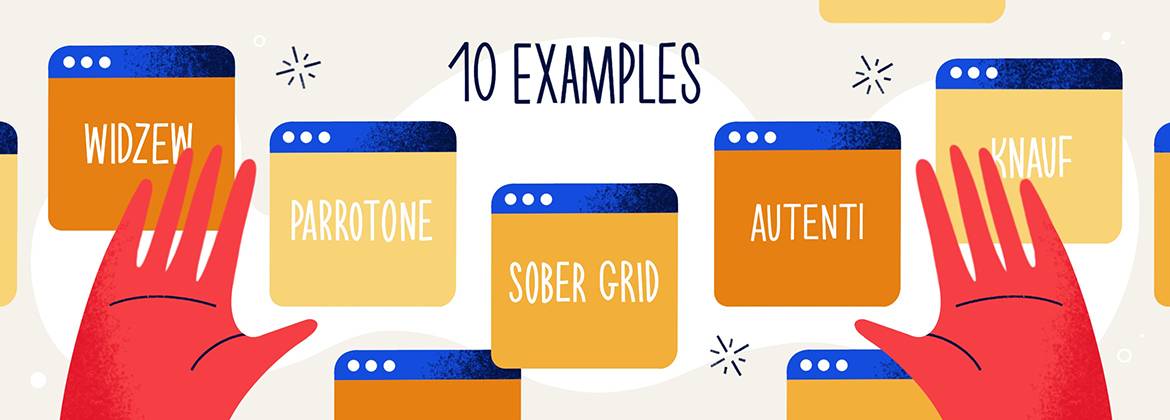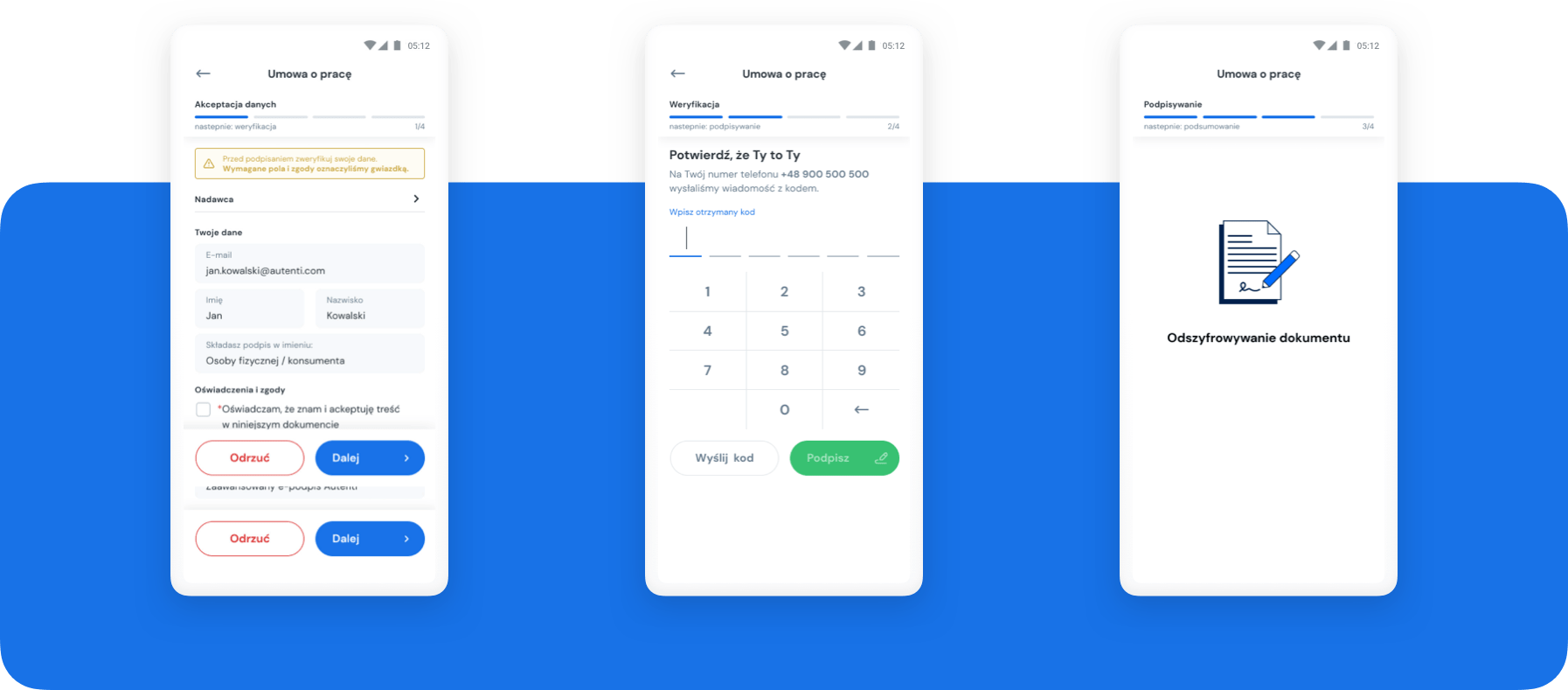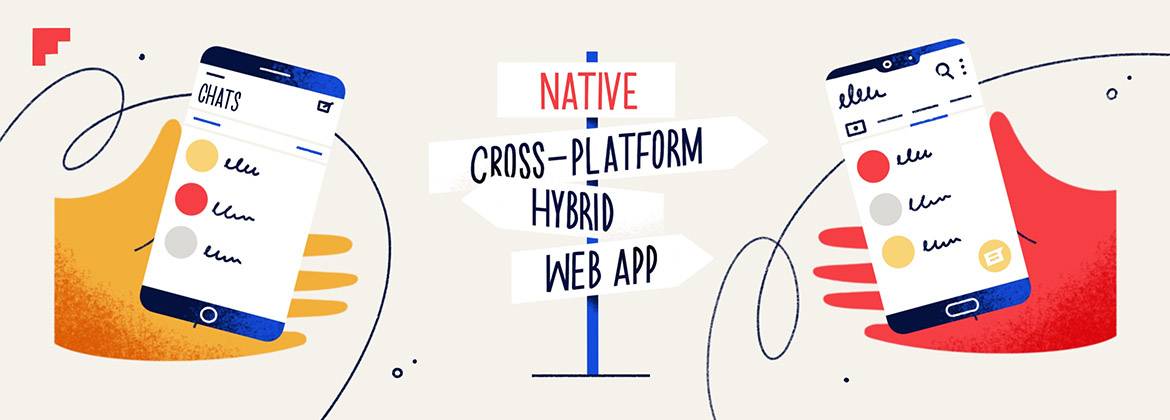
10 native apps examples
We’ve already shared our examples of cross-platform apps made with Flutter. The time has come for native apps that were in fact commonly known much earlier.
A native app, in a nutshell, is a software program developed for use on a particular platform (Android, iOS) or device written in language that is native to that platform. A particularly important benefit of native apps is that they can take full advantage of the device features and latest system updates.
Contents
Why choose native app development?
At FiveDotTwelve we’ve created lots of native apps for different branches. Before cross-platform apps became popular, most of our projects included native app development.
Here are also some examples of reasons why in some cases it might be better to choose native app development:
- Differences in the operation of specific features on different platforms — sometimes there’s a need to implement platform-specific features that work in a certain way on one platform and differently on another, like payments or working in background with photos and movies uploads etc. In this case, even if you choose cross-platform development, the team still needs to write separate codes for each platform.
- Creating libraries — if there’s a need to create a new library, native development is the only option.
- Keeping up to date — it’s much easier to be up to date with all platform-specific changes in a native app and to maintain it in an effective way.
- Making a high-performance and intuitive app — it's good when the user is not surprised by how things look and work. Features introduced in native apps look very similar across the entire system which makes users familiar with them from the moment they’ve downloaded the app, e.g. device’s notification system, buttons placing.
To sum up, the best idea would be to listen to the development team’s advice in terms of technologies for your app. In this article we’ll present you some examples of native apps built by FiveDotTwelve’s teams to make it clearer for you whether to choose native or other development methods.
Autenti — simple and secure documents signing
The Autenti platform and the mobile app enables electronic signing of documents in a simple and secure way. It's a solution for private individuals and for business clients. Through the platform, you can send and sign legally binding documents exclusively online, on any device with Internet access. You can use the platform to send documents to your clients, business partners or colleagues to obtain their e-signature. In Autenti you can also initial a document and give a positive or negative opinion (approve or reject). Which role you are assigned depends on the author of the document.
We were responsible for creating native mobile apps for Android and iOS. We’ve also taken over the creation of SDK to enable other platforms to integrate with our Partner’s platform to offer its users the possibility to sign their documents remotely as well as to view and save them offline, and archive.
The SDK is meant to serve other clients and this means that other platforms teams won’t have to create a new, very complex API to be able to use the e-signature and other useful features it offers. Other companies can simply integrate the ready-made SDK with the app and use most of the features provided by Autenti. That’s one of the reasons why we decided to go native.
Check out the case study to find out more about the app.
Widzew — the best fan app for a Polish football club
RTS Widzew Łódź is a Polish football club based in Łódź, founded in 1910. The app has been recognized by the popular Polish tech news platform as the best sports team mobile application in Poland.
The goal of the product was to connect with the club’s fans through a new and effective channel in response to the growing trend of sport's club apps. It allows users to buy tickets for matches as well as easily and quickly find important information about their favourite team.
With the app, fans can:
- Keep up to date with daily news from the club, matches schedule and the current league table
- Get to know the team better through pictures, videos and information about each player
- Watch photos and videos from the latest matches
- Listen to Radio Widzew (also working in the background)
- Buy tickets for matches.
Moreover, the app has some unobvious features. As almost all seats in the stadium have been purchased in the system of vouchers, we have included the possibility of giving up space for those who will not come, so that someone else can buy the ticket. Another great thing was the implementation of the live broadcast module and creating a map of the stadium using Geoeditor and the GeoJSON format.
We were responsible for creating designs, native Android and iOS apps and launching the app on mobile stores.
The app reached 1st place in the sports apps category and 10 000 downloads in the first week of launching in mobile stores. It also reaches over 3300 active users every day.
Find the whole case study here.
ParrotOne — social networking app for everyone
ParrotOne is a startup — a messaging app with social networking elements that helps you type messages with much less effort. It’s a mobile multi-messaging app to make communication and remote work easier for users with less agile hands (especially the disabled and elderly). Both are intended to make life easier for the physically disabled.
It learns the way users write messages and gradually offers more accurate text predictions so you can conveniently choose pre-made words and phrases on the screen, which limits the amount of arduous typing in favour of user-friendly message building. The purpose was to create an app that would be really useful for people with disabilities and that helps them communicate.
In ParrotOne we developed mechanisms for the keyboard to help people with disabilities to write more quickly and easily. We were responsible for the creation of designs, mobile app development, testing and product launch.
Jump to the case study to find out more about ParrotOne.
Sober Grid — the largest mobile sober community
Sober Grid aims to save lives by allowing sober people to connect with each other.
The Sober Grid app is a sobriety social network available on all smartphones, which delivers on-demand peer support right into the hands of users in recovery from substance addiction. The app was also created to help sober travelers find friends in new cities. It is important to recognize in sobriety that you are never alone. The founders wanted addicts to have constant access to a sober community. They wanted to make it easier for those in need to support each other and communicate. This is why the Sober Grid app came about.
Today it is a platform full of evidence-based tools to help anyone break free from addiction and stay sober. It’s a personalized, easy-to-access resource for tracking and sharing progress with others, giving and receiving support.
The main goals of the app:
- Connecting people in recovery from drug and alcohol addiction, as well as those trying to get sober
- Giving inspiration and motivation to stay sober
- Reducing relapses and improving treatment outcomes with the app's on-demand peer support and geo-location based sober networking
- Staying in touch with patients after they've completed treatment (eligible facilities can add their “graduates” to the app).
The whole story to read here.
Manufaktura — an app for the best shopping experience
Manufaktura is the biggest shopping mall, arts centre and leisure complex in Poland. Based in the city of Lodz, it is an important place in its tourist, cultural and commercial map as it was built by revitalizing former factories in a unique post-industrial space, significant to the city's history.
With Manufaktura's customers in mind, the goal was to make their shopping experience even more pleasant. To achieve this, our Partner chose solutions that included a new website, software development for interactive kiosks, implementing bluetooth beacons and creating mobile apps with core features such as:
- Easy access to crucial information such as the map of the facility, list of events, shops, restaurants, current promotions and more
- Showing available parking spaces through integration with the parking system — taking a problem with it off customers' shoulders
- An interactive historical adventure with a view from before the revitalization of Manufaktura.
Chosen solutions were built from scratch based on our Partner's CMS. Our team, apart from creating a new website, was responsible for creating native iOS and Android mobile apps as well as developing a web app for interactive kiosks.
You can find the description of the whole project here.
Knauf — seeing the results before renovating
Knauf is one of the leading suppliers of building materials in the world. The company strives to make it easier for both professional and non-professional customers to create perfect surfaces with their products.
They wanted to create a product that would be helpful for professionals as well as end users who want to renovate their interiors and check the results of their work easily even before buying a product. That’s how an idea for Knauf Surface Finishing came around.
We’ve built a mobile app which has made it possible to overcome barriers that non-professional users have to pass through when they renovate their homes. Knauf Surface Finishing also helps professionals speed up the process.
Core features of the app:
- Surface quality simulator — 3D room visualisation to see the product quality
- Lighting simulation to see the result in different light conditions
- Calculator to provide customers with an approximate material consumption estimation for joint treatment and surface finishing
- Quick access to tutorial videos to guide customers through every step of renovating activities
Knauf case study is here.
Ecomess — an app to manage water and electricity consumption
Ecomess is a manufacturer producing single-jet water and electronic water meters with a built-in radio module and radio reading systems. Ecomess’ customers are primarily housing associations and companies specialising in utility metering.
Our task was to develop several products (web and mobile apps) with the mission of enabling intelligent data management from water and heat meters.
These solutions are based on a large database collecting information on water consumption from thousands of housing estates. The web portal allows the managers to generate reports, manage alarms and create bills. End users can view their consumption of utilities both on the portal and in the mobile application.
The Ecomess mobile apps are there to:
- Make it easier for people living in houses and flats to control resource consumption and make savings by checking the water consumption in their flats
- Give an insight and enable to manage water and energy consumption of an entire apartment building
- Enable to compare consumption between different water meters in one flat/house.
In the case study you can find information about all products and projects we’ve carried out with Ecomess.
WeAreBikers — mobile app for motorbikes enthusiasts
WeAreBikers is a mobile app in the form of a social platform for motorcyclists. It’s a startup from Poland which focuses on making it easier for the bikers' community to plan and execute their trips together, and to communicate freely and effortlessly.
The goal was to create an application bringing motorcyclists together by enabling them to:
- Contact each other directly through intercom and video calls
- Check other users’ current position on the map
- See the list of all motorcycling events, picnics and season openings on the map
- Access the POI map showing all useful places from gas stations to shops and other spots worth seeing
- Plan their route
- Compare various statistics with friends
- Add new motorcycle events and invite friends to them.
-
Our task was to create a mobile app meeting the expectations of a particular target group and implement the features they expected in an appropriate way. When creating the designs, we launched new ideas into existing MVP but then developed apps for Android and iOS from scratch. In the app, we’ve also implemented a personalized advertising system — advertisements appearing in a specific place and time.
A more detailed description of the project is here.
Sensair — keeping the air quality great
This is another of our projects in cooperation with PySENSE. SensAIR app’s mission was to make a contribution to raising awareness about the quality of the air we breathe by measuring it with air sensors, whether at home, in schools or kindergartens.
With a prototype of a sensor collecting data about the air condition, our task was to create a mobile app that connects with these sensors so that users who want to take care of their air quality can conveniently access and easily monitor this data.
The app allows users to:
- Monitor the state of air quality in the room where the sensor is located even when you are not at home
- Measure pressure, humidity and other air parameters when connected to a sensor via Bluetooth
- Manage several sensors simultaneously
- React immediately thanks to the emergency air condition alerts.
In this project we were responsible for native mobile app development and creation of designs, as well as for testing and launching the product on mobile stores.
Sensair case study here.
Lagerhaus — agrotech mobile app for farmers
Lagerhaus is an agrotech mobile app created for GreenSense, a startup from Vienna, Austria. Their goal is to maximize the output of the fields and reduce costs by providing information about soil composition and they recognized that taking advantage of mobile devices would be perfect for this purpose. GreenSense founders decided to develop an attractive mobile app that users could use to access their services.
This app helps farmers by:
- Delivering information about the irrigation status of farming fields
- Retrieving field data, defined by farmers, from the app’s database
- Enabling them to input information about the soil’s water capacity and download information about irrigation requirements
- Giving advice and automatically updating them based on the data that they provide and downloading them from external sources like satellite images and weather forecasts.
Our task was to design and develop the native iOS and Android apps, as well as to test them and launch in mobile stores. These solutions rely on satellite technology to conduct thorough analyses of irrigation requirements and plant status at a given location. The system takes into account site-specific factors, such as soil quality, weather, precipitation and crop rates.
The result was an intuitive application for non-technical people who cultivate and need a tool to monitor the conditions of their crops.
See the review from our partner and read the whole case study here.
Conclusion
Now that you’ve familiarized yourself with some examples of different native apps, you have an idea of what they look like and what features can be implemented in them. Remember that if you don't have experience in mobile app development, it's always a good idea to get help and advice from people who deal with it on a daily basis. Good luck!
And in case you’re hesitating or can’t decide whether you should go with native app development or not, you can contact us and we’ll be happy to help.
















